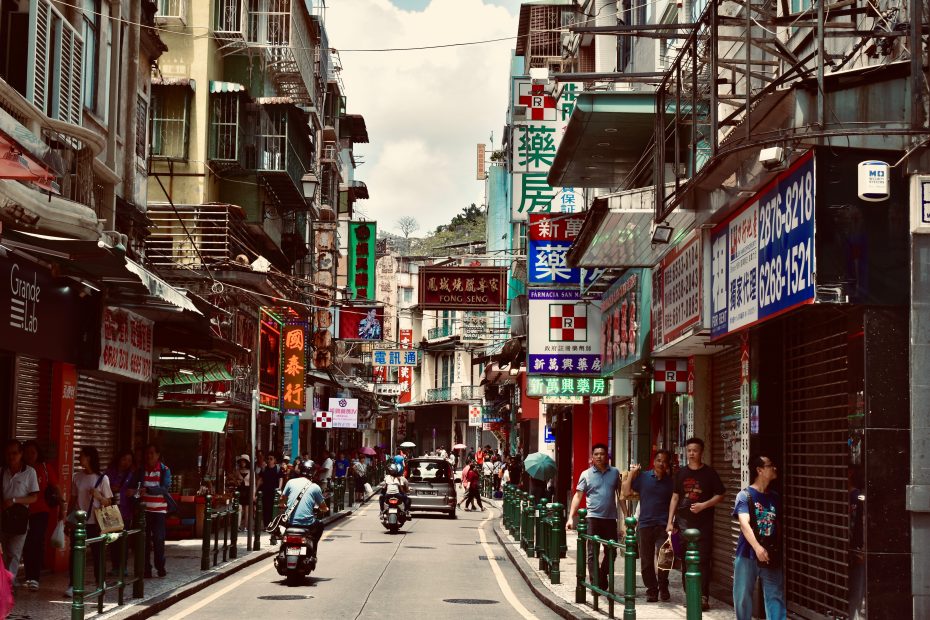Table of Contents
Introduction
Macau is well-known for being the Las Vegas of Asia, attracting tourists with its extravagant casinos and resorts. However, behind the glitzy facade lies a rich multicultural heritage built over centuries of settlement and colonization. From Portuguese traders in the 16th century to the handover to China in 1999, Macau’s history has made it a melting pot of diverse cultural influences. This article will explore the many facets that make up Macau’s vibrant and cosmopolitan society today.
Main Cultural Influences
Macau’s culture draws heavily from both its Portuguese colonial past and its Chinese roots. Portuguese traders first settled in Macau in the 1500s and administered the region until 1999. This has left an indelible imprint on the local culture, architecture, food, and customs. At the same time, centuries of migration from mainland China means Chinese culture is also an integral part of daily life. The interplay between these Eastern and Western influences makes Macanese culture unique.
Cuisine
Macau’s cuisine perfectly encapsulates its multicultural essence. Famous Portuguese dishes like the Portuguese egg tart have become local favorites. Chinese delicacies are everywhere, from street food stalls to high-end restaurants. Over time, the two culinary traditions have blended to create Macanese fusion food like Galinha À Portuguesa, a Portuguese chicken dish prepared with Chinese ingredients. Macau is a food-lover’s paradise.
Languages
While Cantonese is the primary language, Macau’s official languages are Cantonese, Mandarin, Portuguese and English. Most locals speak Cantonese and English, or Cantonese and Mandarin. Due to Macau’s history, many residents also speak Portuguese fluently. This linguistic diversity reflects the different ethnic groups that call Macau home.
Religions
Religious freedom and diversity are central to Macanese society. Due to the Portuguese influence, Catholicism has a strong foothold, with many grand churches across Macau. Chinese Buddhist and Taoist temples are equally ubiquitous and play a key role in community life. Smaller communities of Muslims, Protestants and Hindus enrich the religious tapestry. Peaceful co-existence of faiths reflects Macau’s multicultural ethos.
Ethnic Diversity
Ethnically, over 90% of Macau’s population is Chinese. Within this, many different groups are represented, including Cantonese, Hokkien, Teochew, and Hakka among others. Sizeable Portuguese and Macanese (mixed Chinese-Portuguese) communities also reside in the region. Additionally, expats from Europe, Southeast Asia, and other parts of China have made Macau their home, attracted by its jobs and quality of life.
Architecture
From centuries-old Chinese temples to pastel-colored Portuguese villas, Macau’s architecture paints a lovely picture of East meets West. The Historic Center of Macau is a UNESCO World Heritage Site with over 20 landmark sites, including the iconic Ruins of St. Paul’s Cathedral. Chinese temples like A-Ma Temple showcase traditional Chinese architecture. Modern casino resorts and high-rises exist side-by-side with old colonial buildings, representing Macau’s continuous evolution.
Customs and Traditions
Macau celebrates festivals and holidays from both Chinese and Portuguese traditions. Chinese New Year and Mid-Autumn Festival are big occasions marked by feasting and festivities. Catholic celebrations like Christmas, Easter and the Feast of Our Lady of Fatima are also observed. The Macanese Dragon Boat Festival combines elements from Chinese dragon boat races and Portuguese water parades for a unique cultural experience.
Challenges
While diversity brings vibrancy, preserving cultural identity amidst rapid change is a challenge. The surge in casino tourism threatens to dilute traditional culture. Locals have expressed concerns about the encroachment of Mandarin at the expense of Cantonese post-handover. Nevertheless, through conscious revival of customs and advocacy for heritage preservation, Macau continues to thrive as a multicultural society.
Benefits of Multiculturalism
On the positive side, multiculturalism has enriched Macau through cultural exchange. Different ethnic groups have learned from each other over time, leading to a sophisticated fusion culture and unique local identity. Economically, tourism and trade have boomed thanks to this cultural landscape. Multiculturalism has undoubtedly put Macau on the map.
The Future
Looking ahead, Macau seems likely to continue embracing its diversity while balancing the preservation of culture. New developments like the expansion of the light rail transit system will integrate different communities. Cultural advocacy groups work actively to maintain local heritage against changing tides. The government has also made some efforts toward multicultural policies. If conscious steps are taken, Macau’s multicultural essence should endure.
Conclusion
Macau’s multicultural history has shaped the very soul of its society. From food to architecture, language to customs, the intermixing of Chinese and Portuguese influences is palpable throughout daily life. No doubt challenges exist, but initiatives are in place to preserve Macau’s heritage into the future. Both locals and visitors continue to appreciate the city for the unique cultural melting pot that it is.
FAQs
Q: What are the main cultural influences in Macau?
A: The main cultural influences in Macau are Portuguese culture from the colonial era and Chinese culture from migration and ties to mainland China. These Eastern and Western influences blend to create Macau’s multicultural identity.
Q: What languages are spoken in Macau?
A: The official languages are Cantonese, Mandarin, Portuguese and English. Most residents speak Cantonese and English or Cantonese and Mandarin. A portion of the population also speaks Portuguese due to Macau’s colonial history.
Q: What are some examples of Portuguese-inspired architecture in Macau?
A: Examples include the Ruins of St. Paul’s Cathedral, Senado Square, the Holy House of Mercy, Guia Lighthouse, and the pastel-colored villas in Taipa Village. The Historic Center of Macau has many Portuguese colonial structures.
Q: How does Macau celebrate multicultural holidays and festivals?
A: Macau celebrates major Chinese festivals like Chinese New Year, as well as Catholic events like Christmas and Easter. There are also unique cultural blends like the Macanese Dragon Boat Festival fusing Chinese and Portuguese traditions.
Q: What efforts is Macau making to preserve its multicultural heritage?
A: Advocacy groups work to maintain heritage sites and culture. The government has introduced some multicultural policies. Locals aim to consciously revive old customs and balance different ethnic influences through events, education, and urban planning.
